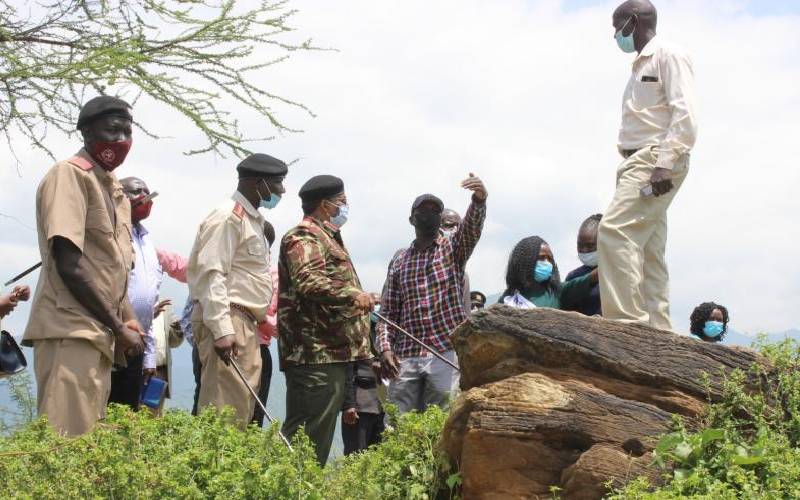
Elgeyo Marakwet County Commissioner Dr.Omar Ahmed (in jungle uniform) together with Marakwet East MP Kangogo Bowen and the security team in Kerio valley. [Christopher Kipsang,Standard]
Kerio Valley is bleeding once again. The rivulets of blood are now thicker but flow more furiously than they did six years ago, when banditry-related attacks erupted in the area that cut across three North Rift counties. The government’s move to increase the number of police stations in the region, withdraw police reservists believed to have been siding with their communities and deploy special security bosses are yet to bear fruit.